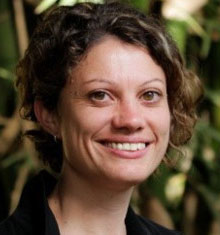
The versatile and edible palm oil can be found in everything from pizza dough to instant noodles and bread. And Indonesia, the world’s largest producer of the oil, is ramping up production to meet global demand.
The palm oil sector has become vital to the country’s economy. However, some palm oil production has been associated with deforestation and the loss of biodiversity-rich forest, leading to greenhouse gasses emissions that drive global climate change.
In May 2023, CIFOR-ICRAF conducted a national roundtable to map out a sustainable palm oil plan in Indonesia to establish sustainable palm oil value-chains and ensure that the trade benefits the environment while generating economic benefits for people.
The challenge is to maximize the development and economic benefits of this pivotal national commodity sector, while minimizing its adverse social and environmental effects. Experts discussed perspectives and a pathway forward around challenges, such as the implementation of new regulations imposed by the European Union, to stop commodities including palm oil, produced on land subject to deforestation after 2020 from entering EU markets.
Better planning
Speaking at the GCRF Trade, Development, and the Environment Hub (TRADE Hub) workshop to promote green trade and address the climate crisis, experts discussed concerns about deforestation and opportunities to mitigate carbon emissions in the sector. They noted that governments, private sector, researchers, media and the public must come together to ensure that the trade remains just, sustainable and economically viable for communities in the long-run.
Suria Tarigan, from IPB University, noted that by 2035, an increase of 12 million tons from current production levels will be necessary to meet demand. “In future, we still need to increase oil palm production,” he said, noting that responsibility must be taken by everyone along the value chain and capacity among smallholder farmers must be built.
For a roadmap on oil palm production to be sustainable, planning is key, he added – from district level to national level special planning. Policy must be aligned at all levels across the country, and all communities – indigenous rural and urban communities – made aware of their land and boundary rights to reduce conflict and deforestation and empower farmers. “I consider that legality is the most important thing in sustainability assessment,” he added.
Joint vision
Tanya Payne, Programme Officer at UNEP-WCMC supporting the Trade Hub, said the roadmap and action plan could be based on five action tracks identified as globally important for driving sustainable trade: consumption, production systems, local-global markets, distribution of benefits and smallholder needs, and consider the needs of consumers, private sector, public sector, farmers, rural communities, forest users, civil society, media and academia. “Each action track needs to consider the roles and impacts on each stakeholder,” she said, adding that a common vision among all actors is critical for just and sustainable trade.
Herry Purnomo, Indonesia Deputy Country Director, CIFOR-ICRAF, said that discussing conflicting ideas is a critical part of formulating a shared vision. “This is not a binding roadmap developed by government, we can all contribute,” he said. “This is research, we have flexibility and dialogue. This will be owned by all of you that participate at this workshop. It is an intellectual product that we all contribute to and own. We can hopefully contribute this roadmap to more binding and formal process, this derives from research and can hopefully be our intellectual contribution,” he added.
Addressing gaps
Herry Purnomo also commented on how the road map must ensure oil palm can contribute to lowering emissions, through incentives like carbon credits which are not clear in the oil palm sector, to avoid deforestation. “It is important to ensure that oil palm can contribute to lowering emissions. Incentives in carbon credits are not very clear for oil palm – we understand that some oil palm is still coming from deforested areas whether directly or indirectly,” he said.
From IPB University, Miftah Rahman moderated a discussion to underscore the importance of ensuring that the views of smallholder farmers are reflected in such a roadmap, in addition to the priorities and policies of government and private sector partners. Increasing production without expanding the area in which palm oil is produced will impact smallholders, and each community must be involved to ensure the sustainability of the sector.
“Shared responsibility should also be there. We also have to consider the consumers and the private sector,” he added to sum up the discussion, noting the vision among participants for: “Legal and sustainable palm oil that delivers wellbeing for smallholders, protects, forests, respects the rights of indigenous peoples and local communities based on collaboration and shared responsibility.”
For more information on this topic, contact Herry Purnomo at h.purnomo@cgiar.org
The Road map is being developed under the Trade, Development and the Environment Hub (TRADE Hub) – a global research consortium led by the UN Environment Programme World Conservation Monitoring Centre (UNEP WCMC) and supported by the UK Research and Innovation Global Challenges Research Fund (UKRI GCRF).
We want you to share Forests News content, which is licensed under Creative Commons Attribution-NonCommercial-ShareAlike 4.0 International (CC BY-NC-SA 4.0). This means you are free to redistribute our material for non-commercial purposes. All we ask is that you give Forests News appropriate credit and link to the original Forests News content, indicate if changes were made, and distribute your contributions under the same Creative Commons license. You must notify Forests News if you repost, reprint or reuse our materials by contacting forestsnews@cifor-icraf.org.












